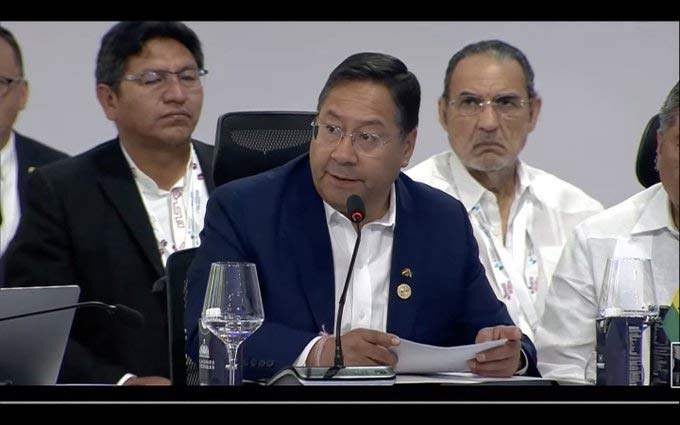“The forms of resistance to participatory democracies are hidden in apparent freedoms of expression, of the press, so that they last until they want to make any action that preserves and protects those who have historically been excluded unpresentable,” he assured.
In his speech before the plenary session of heads of state and government, as well as delegations from member countries of the Ibero-American Conference, Arce affirmed that coups d’état, institutional ruptures and the permanent siege of popular democracies have ways of apparent democratic discourse.
During his speech at the Santo Domingo meeting, he insisted that it is time to “rethink democratic forms” that are more participatory, “with expanded citizen rights and fundamentally with societies and States that are adequate and strengthened for the new time and decisively prepared to face conservative projects”. In addition, he proposed to advance in the strengthening and extension of democracy, as well as in the creation of mechanisms that protect it.
He criticized that “the government of the judges and the merciless legal offensive against popular leadership forces us to have to constitutionalize a set of new institutions that defend and preserve intercultural and popular democracies,” he said.
Without giving further details about this proposal, the Bolivian president repeated the need for multilateralism.
Before the plenary of the summit, a forum that brings together delegations from 22 States with objectives of political agreement and cooperation on different issues, Arce advocated that collaboration and multilateralism contribute to facing the current economic and food crisis.
He called for “discarding the unfair international order that has only generated crisis, instability, turbulence and uncertainty in our peoples” based on a capitalist model in crisis.
“The third millennium finds us reconstituting blocks and new alliances- described Arce, new forms of relationship between peoples”.
He remarked that circumstances demand that cooperation and Official Development Assistance adapt to current challenges, that it consider the real needs, capacities and potential of the countries.
Likewise, he must consider the challenges and transitions to which the world economy is driven: such as the energy transition, the ecological transition or the digital transition, the dignitary concluded.
ef/lam/jpm









